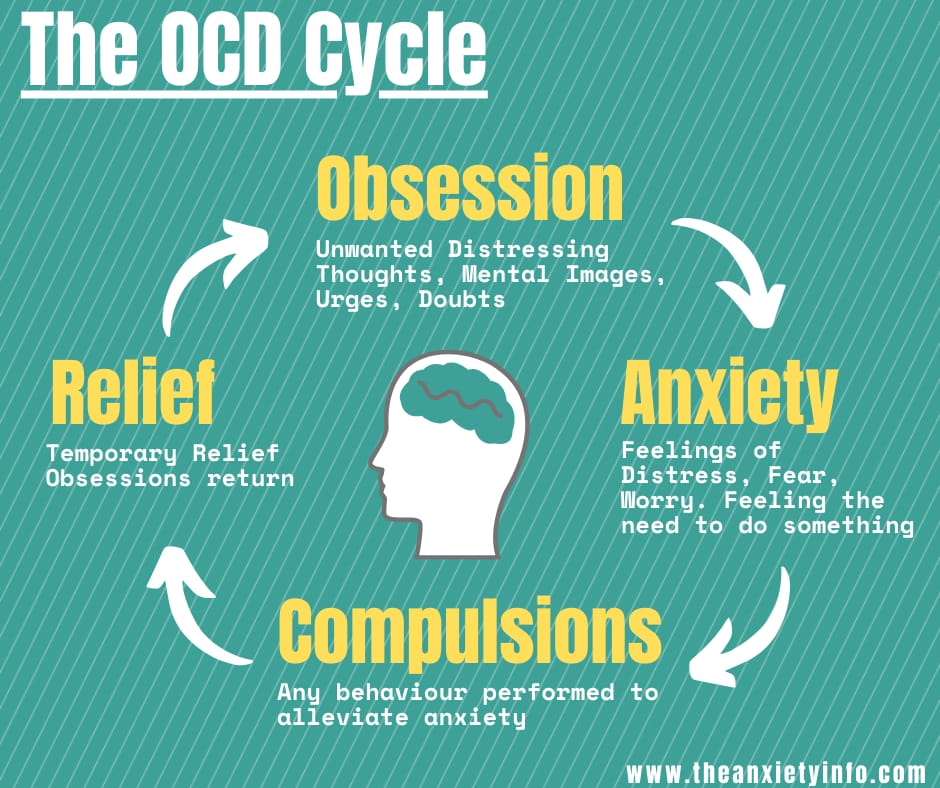How to beat anxiety at work
11 Tips to Handle Anxiety at Work and Beat Stress
We are all familiar with the feeling of anxiety at work. It’s far more common than many of us realise. Our office environments are overloaded with technology and distractions and we easily feel overwhelmed and stressed, and this can soon spiral into recurring anxiety at work.
There are so many reasons for anxiety at work from the pressure of securing an important client to the hundred and one small stresses of constant deadlines and meetings. In a study by the University of Otago, high-pressure jobs were linked with increased risk for anxiety and depression. Not only does anxiety impact our productivity and reduce our emotional intelligence, it also can disrupt our health and well-being. Unfortunately, work anxiety is never just work anxiety. It intrudes on the rest of our lives as well. Anxiety at work can manifest in many forms from a feeling of unease to a feeling of severe fear.
However, despite this, there are plenty of ways to handle anxiety at work. According to the National Institute of Mental Health, anxiety disorders are among the most common and treatable mental disorders. We’ve combined a list of tips that you can apply to your life right now and help you reduce it. Whether you’re the manager of a large group or experience anxiety at work yourself, there are many ways to combat it.
Have all the facts about anxiety at work
Information is key when seeking to improve how we do anything, particularly at work. You wouldn’t try to fix the broken printer without knowing how. It’s the same with anxiety. Become informed and you can begin overcoming anxiety at work.
Some of the key signs of anxiety include sleep deprivation, difficulty focusing, fatigue, heart palpitations and even trouble breathing. Anxiety can go far beyond normal levels of stress.
Take Breaks
One of the greatest distractions today is technology. It constantly bombards us with things that demand our attention and it can be one of the greatest causes of anxiety at work. While at the office, take mini-breaks between your common tasks. After answering several emails, get a breath of fresh air. The distance and change of scene could help you stop focusing on your emails, or it could give you the few moments you needed to get some perspective on that last difficult missive from a client. After your brief time outdoors, you can return indoors and start your next assignment refreshed without carrying around the anxiety about that last email you sent. Other great breaks might include fetching a glass of water, a stroll around the room and even just standing up and stretching can help clear your mind off work anxieties.
While at the office, take mini-breaks between your common tasks. After answering several emails, get a breath of fresh air. The distance and change of scene could help you stop focusing on your emails, or it could give you the few moments you needed to get some perspective on that last difficult missive from a client. After your brief time outdoors, you can return indoors and start your next assignment refreshed without carrying around the anxiety about that last email you sent. Other great breaks might include fetching a glass of water, a stroll around the room and even just standing up and stretching can help clear your mind off work anxieties.
Focus on the present
One of the key ways to reduce anxiety is by focusing on the moment. By concentrating on breathing, we are no longer focused on our anxiety at work but on a simple action. This might sound too simple, and yet difficult when your anxiety at work has reached a pitch and there are so many other things you feel you ought to be focused on, but just a few minutes of refocusing and change the momentum of your day and reduce your anxiety at work.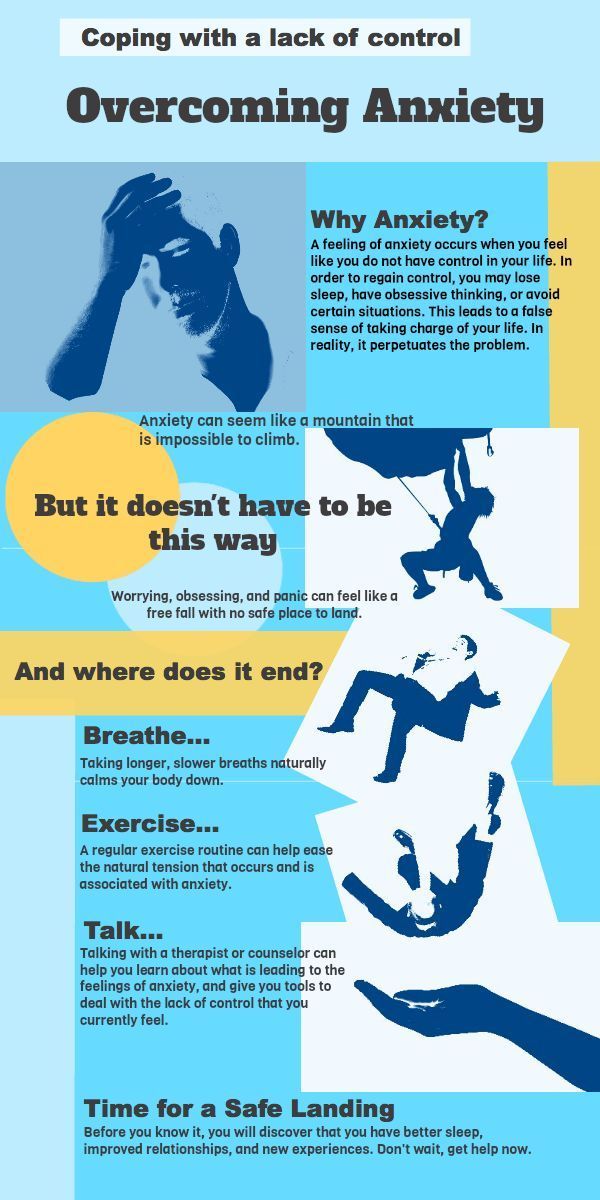
Related: 6 Easy Tips for Mindfulness at Work
Talk about it
One of the most common pieces of advice about anxiety at work is to speak to someone about it. Depending on how severe your anxiety is you can speak with a friend or family member or a doctor. With information, you can decipher which is most appropriate for you. If you have the signs of clinical anxiety then seek help. Talking about our anxiety can greatly reduce the fears around it, as well as lessening the stigma we associate with it. Often, we judge ourselves harshly when our friends, family or a professional would be understanding. After all, it is estimated that 30% of North Americans experience anxiety.
Avoid negative people
One of the single most anxiety-inducing things at work can be negative people. There are many ways to deal with negative people at work. An effective approach is to physically remove yourself from the situation. If you have to return you will have a clearer mind and be able to deal with them from a more positive perspective, without risking getting caught up in their negativity and anxiety.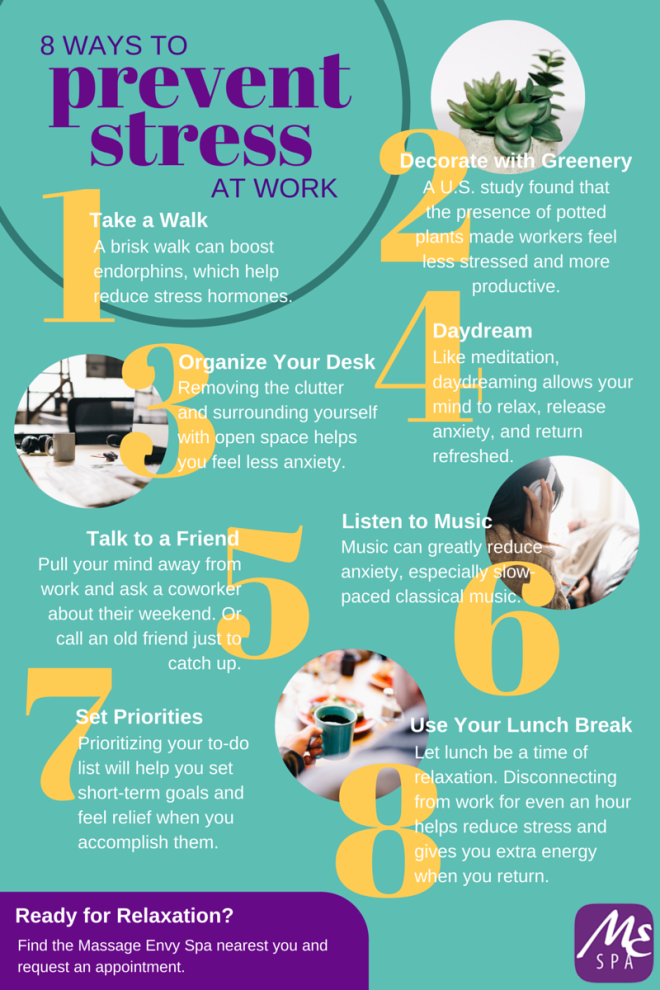
Related: How to Handle Confrontation in the Workplace
Stop trying to please everyone
One of the main contributors to anxiety at work is our need to please everyone. But it’s not possible. We’re not suggesting you start making enemies of your colleagues by ignoring instructions or by incurring the irritation of your staff by disregarding them when they make legitimate requests. But you can decide what you are capable of doing. If you are upfront about it, people’s expectations will change to suit you, and they won’t expect more than you are able to give. If you give the impression that you want to please everyone, it’s likely that the people you work with often come to you with their requests and complaints. Set your boundaries and your anxiety about pleasing people should reduce.
Focus on work
This might sound obvious but focusing on what you’re doing can stop anxiety creeping into your workday. This is a common technique of mindfulness. By focusing your attention completely on one task the anxiety which intrudes and prevents you from being efficient and enjoying your work will reduce.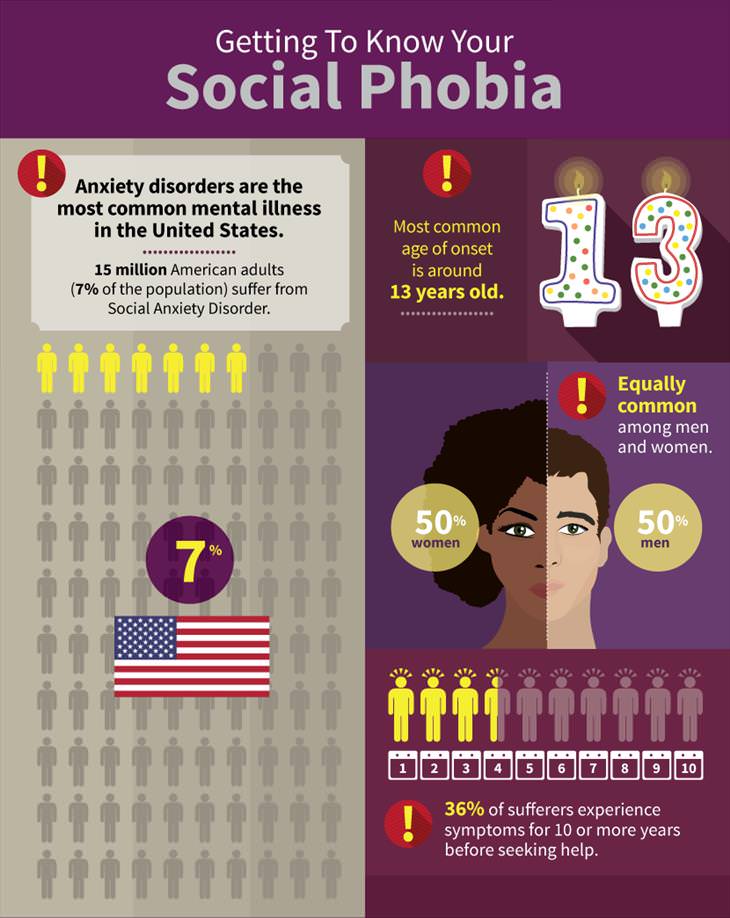
Set goals and work towards them
It’s easy to get overwhelmed with how much you need to do every day and then let anxiety at work take over. An effective way to deal with this is by setting goals for what are the most important work objectives and how you will achieve them. Often, just seeing your to-do list and a plan written down can greatly reduce your anxiety at work. Instead of the struggling with a perceived mass of work and no real plan of how to achieve it, you can see what needs to be done. Then you can begin to tick things off. Start straight away. When you achieve a goal, you can reward yourself.
Delegate
Linked to setting goals and working towards them is delegating. If your to-do list is too long it’s time to delegate tasks. Although, we often feel like we want to handle everything alone it can be much more effective to ask other people. They will feel more involved in the business and you can relax a bit more, knowing tasks are getting done.
Give encouragement and support
With so many people experiencing anxiety if you have a few members of staff you can be sure at least one of them has anxiety.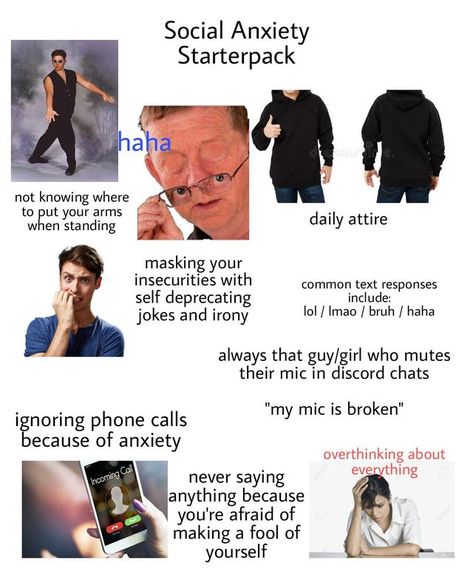 You may have anxiety at work also. By encouraging and supporting your staff you can go a long way to reducing their anxiety, as well as your own, by creating a supportive environment where people feel able to share and ask for help. This will make for a more productive team overall.
You may have anxiety at work also. By encouraging and supporting your staff you can go a long way to reducing their anxiety, as well as your own, by creating a supportive environment where people feel able to share and ask for help. This will make for a more productive team overall.
Establish your work life balance
This is an ideal we all dream of. The perfect balance where we leave work at work. Have fun during our spare time. Exercise every day, and of course, eat a balanced and healthy diet. In reality, it can be hard to separate these parts of our lives. Work seeps into our free time with the constant buzzing of our phones to tell us we have another work email, while the same technology can mean our family is texting us with requests for shopping or because they forgot to walk the dog. You can help reduce your anxiety at work by clearly delineating that you should not be disturbed when you are at home or when you are at work – unless it’s a real emergency. This will help you to make the distinction as well as everyone else.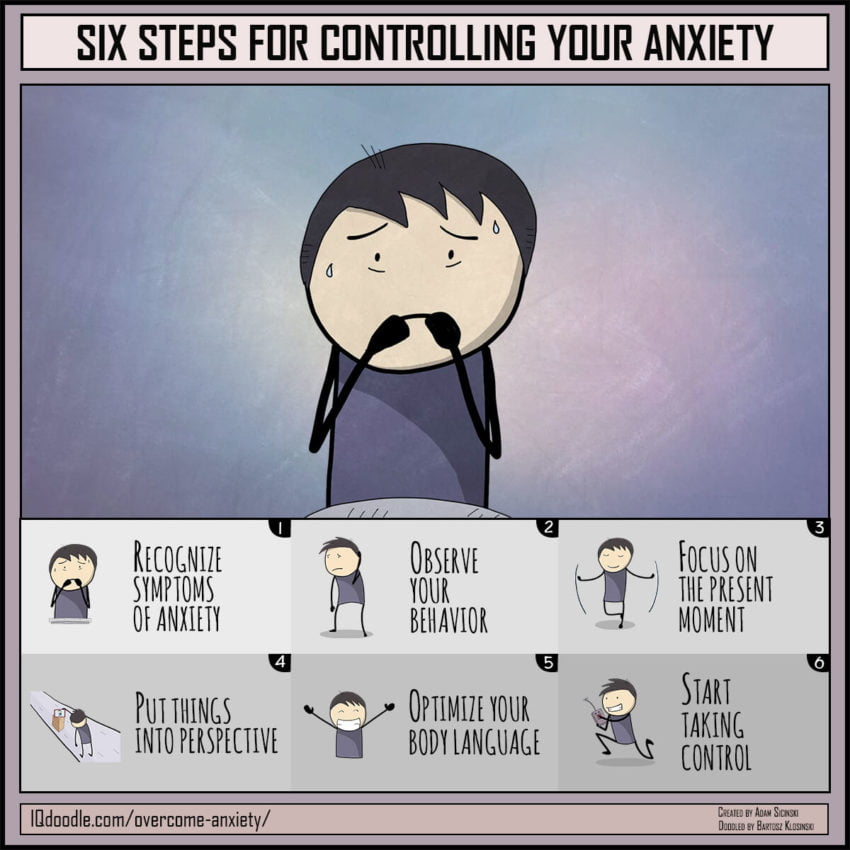
By implementing some or all of these tips you can reduce the effects of anxiety at work. This will lead to more productive and more relaxing and enjoyable workdays.
12 Tips for Dealing With Anxiety at Work
12 Tips for Dealing With Anxiety at WorkJump to
- Main content
- Search
- Account
US Markets Loading... H M S In the news
Chevron iconIt indicates an expandable section or menu, or sometimes previous / next navigation options. HOMEPAGEStrategy
Save Article IconA bookmarkShare iconAn curved arrow pointing right. Read in app Dealing with anxiety doesn't have to mean you can't work effectively. Maskot/Getty Images
Read in app Dealing with anxiety doesn't have to mean you can't work effectively. Maskot/Getty Images - Nearly 50 million Americans struggled with a mental health illness recently, per 2022 research.
- Medical professionals recommended practicing mindfulness and trying progressive muscle relaxation.
- Research shows making time to socialize and to be outdoors could also improve your wellbeing.
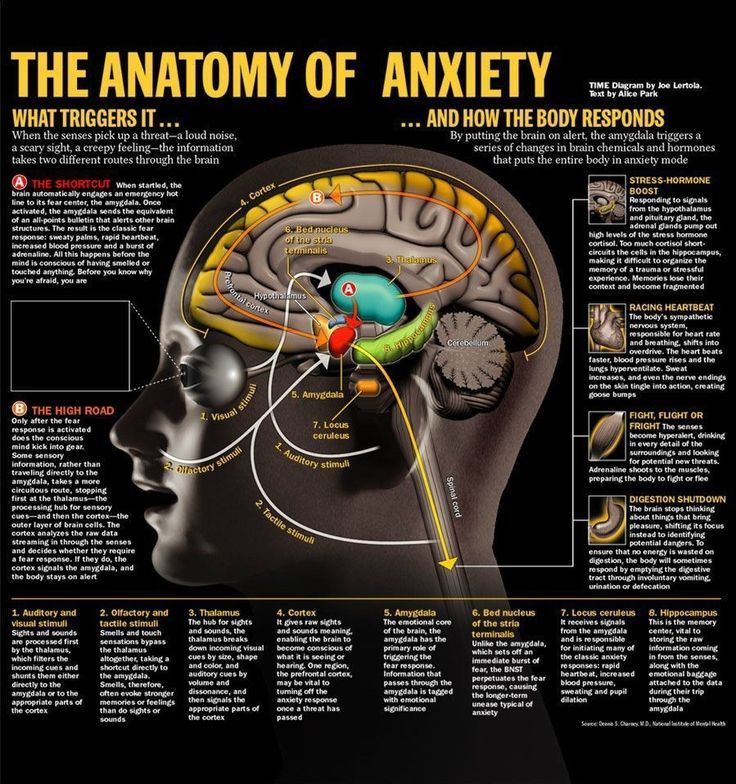
Thanks for signing up!
Access your favorite topics in a personalized feed while you're on the go.
In March, President Joe Biden declared a national mental health crisis in his first State of the Union and outlined a national plan to improve the wellbeing of Americans.
For many, mandates to return to the office or job sites are causing anxiety as the US nears 1 million COVID-19 deaths. The overwhelming majority of workers feel stressed about returning to work in person, according to a 2021 survey of 4,500 workers by software company Limeade. What's more, nearly 80% of respondents said they feared exposure to COVID.
If you're struggling with anxiety while working, there are easy-to-adopt strategies that can help you.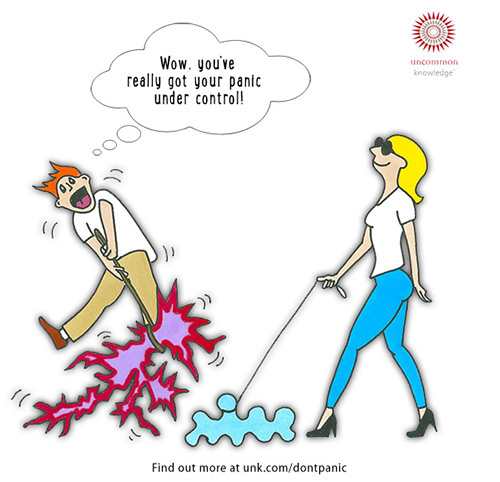
This article was originally published in 2016 and has been since updated in 2020 and in 2022.
1. Don't let anxiety determine how you live.
Those with anxiety shouldn't fear living, licensed clinical psychologist Dr. Marla Deibler says. Shutterstock/tommaso79People with anxiety should avoid limiting themselves, according to Marla Deibler, licensed clinical psychologist and the founder of the Center for Emotional Health of Greater Philadelphia.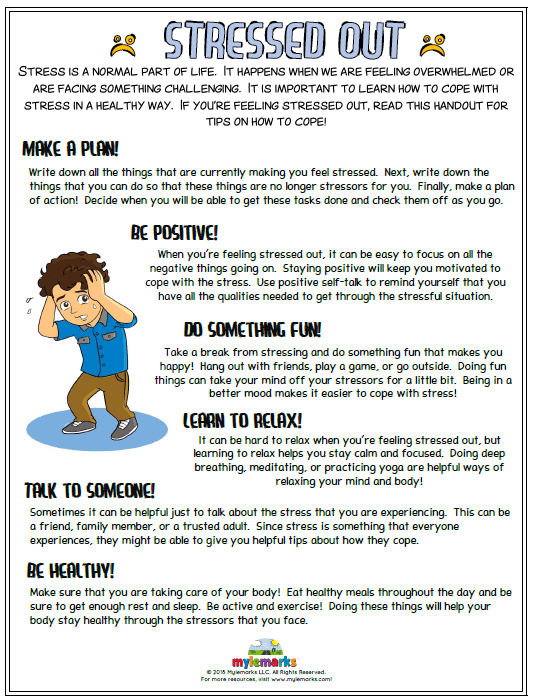
"Those who struggle with anxiety should strive to fully participate in life, despite their bodily experience of anxiety — anywhere at anytime," Deibler says. "Being willing to fully experience themselves and their private experiences (thoughts, feelings, physical sensations, etc.) and being accepting of that range of experiences, while continuing to act on with what is important to them, will lead them to in the direction of ceasing the struggle with anxiety."
While this may sound hard to do during social isolation, experts say activities like journaling, yoga, and meditation can help one feel fully present in the moment.
Deibler provided Insider with some other crucial tips — from symptom management strategies to changing your entire mindset — for handling anxiety in your job.
2. Try not to suppress your anxiety.
The next time you feel anxious, try practicing acceptance. Rawpixel.com/Shutterstock.com
Rawpixel.com/Shutterstock.com Stifling your feelings is counterproductive.
"Everyone experiences anxiety," Deibler says. "It is a normal response to stress. Let it in when it shows up. Practice acceptance. Rather than trying to push it away (which tends to be futile, resulting in feeling more overwhelmed and less in control), make room for anxiety. It is showing up to try to bring your attention to something."
Deibler says that, by allowing space for some anxiety while you're working, you'll render it less bothersome in the long run.
3. Make time before or after work to be outdoors.
 Pine Tree Tools
Pine Tree Tools A 2021 study by the University of York found that engaging in outdoor activities, like gardening, can improve mood and reduce anxiety. Additionally, participating in an outdoor hobby for 20 minutes consistently for three months was associated with better mental health, the authors found.
4. Be mindful.
Practicing mindfulness can help you overcome moments of panic. Oliver Rossi/Getty ImagesCheck in with yourself once in a while.
"Examine anxiety with curiosity when it shows up, rather than rejecting it," Deibler says. "What do you notice when it shows up? What are you thinking and feeling?"
5. Invite anxiety along for the ride.
Try pushing yourself outside of your comfort zone. Fizkes/ShutterstockConfront your anxieties head on. If you're nervous about public speaking, take an online class to improve your skills. If you're afraid of talking to your coworkers, try to strike up a conversation via video chat.
If you're afraid of talking to your coworkers, try to strike up a conversation via video chat.
"Push yourself to enter situations that lead to anxiety in order to demonstrate to yourself that you can persevere and succeed despite anxiety," Deibler says. "Exposing yourself to anxiety-provoking situations, rather than avoiding them, helps to change your relationship to anxiety and increase your confidence in these situations."
6. Practice self-care.
Catching up on your sleep is a great way to relieve stress. Brian Snyder/ReutersDon't forget to take care of yourself.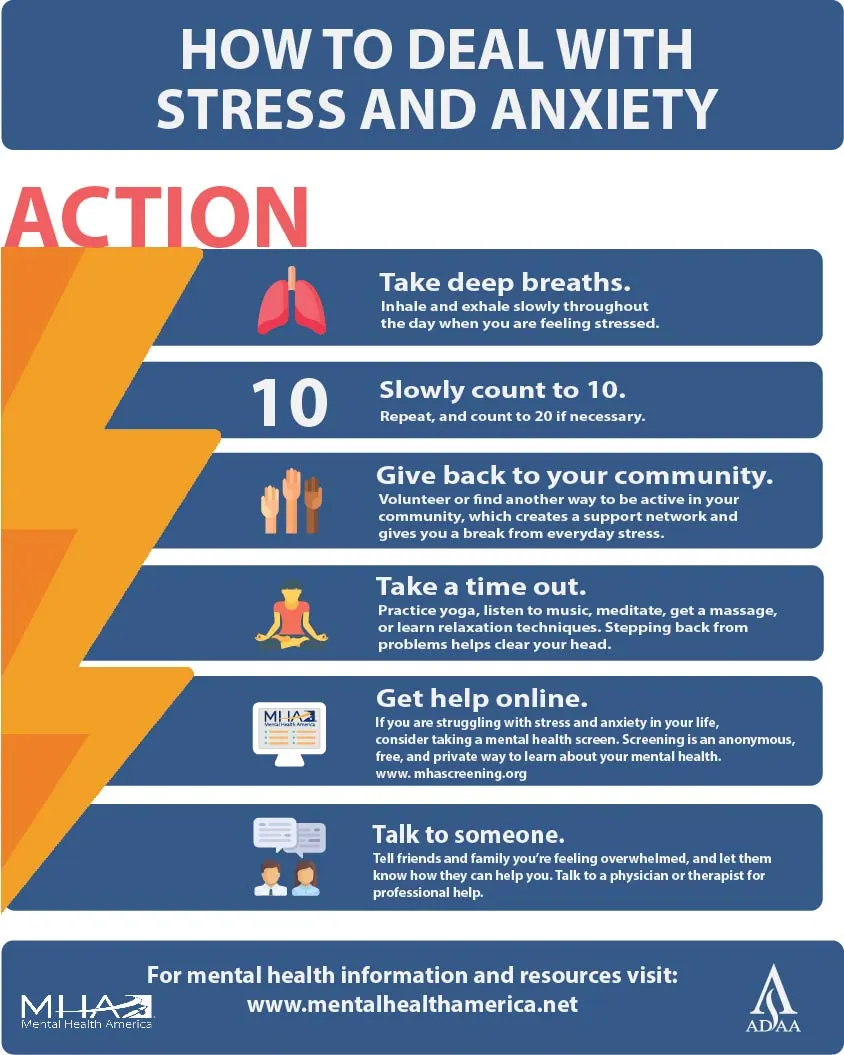
"Attend to your own feelings and healthy lifestyle practices: good nutrition, sleep, and exercise are important to well-being, resilience, and healthy stress management," Deibler says.
7. Remind yourself that your mind is not always the best advisor.
Take stock of the thoughts you're having. Getty ImagesSometimes, you can't trust yourself.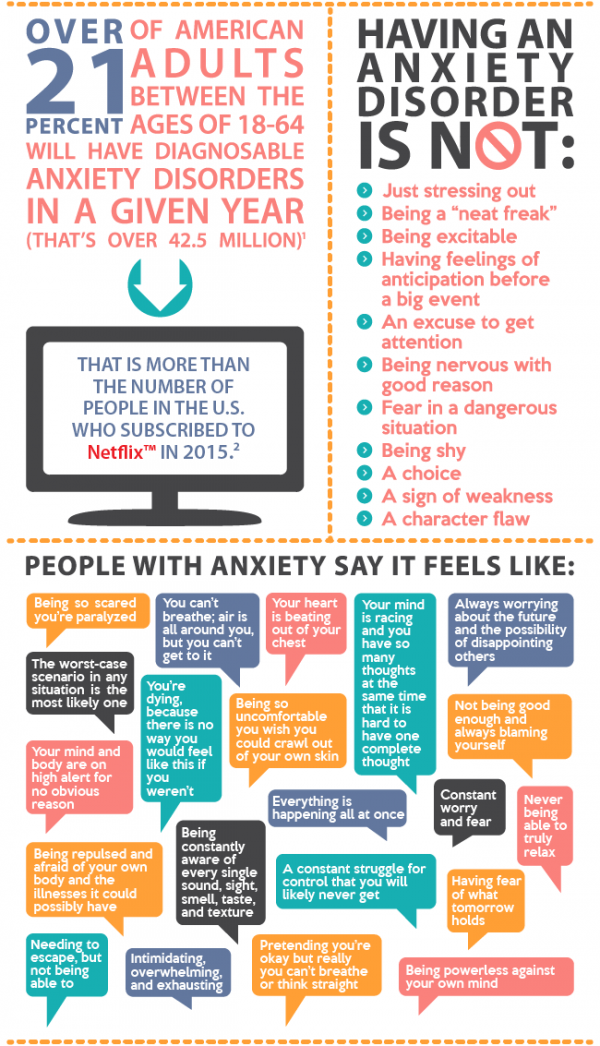
"Our minds like to constantly tell stories, analyze, judge, give advice, and criticize," Deibler says. "Sometimes these thoughts are supremely unhelpful to us. Observe what your mind does. Notice the thoughts. Note that they are not objective truths. You get to decide whether the thoughts are worthy of your attention."
8. Take a break.
Getting some outdoor time can help relax your mind. Dan Kitwood/Getty ImagesDeibler notes that changing your pace or scenery from time to time actually helps with managing anxiety.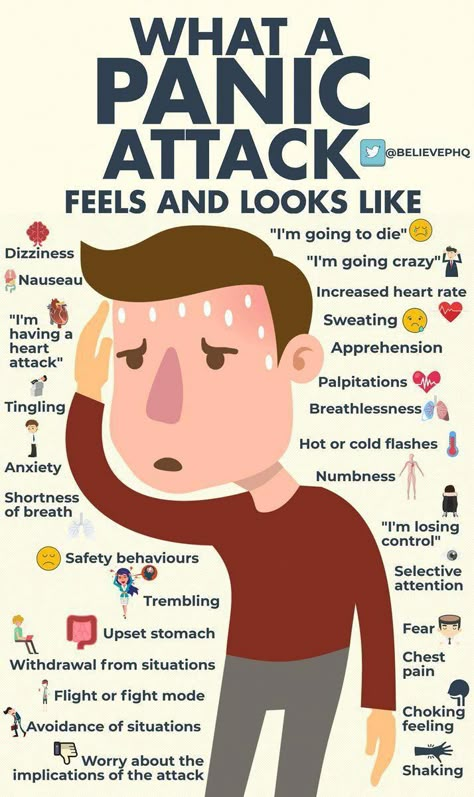 Find ways to do this while social distancing: maybe bask in the sun if you have a backyard, or go for a stroll in a nearby park. When taking precautions, the risks of spreading or contracting the virus in open air are slim, experts say.
Find ways to do this while social distancing: maybe bask in the sun if you have a backyard, or go for a stroll in a nearby park. When taking precautions, the risks of spreading or contracting the virus in open air are slim, experts say.
9. Try progressive muscle relaxation.
Taking a few minutes during your work day to stretch or practice diaphragmatic breathing can help. Dean Drobot/ShutterstockEngage in exercises that relax your body and set your mind at ease.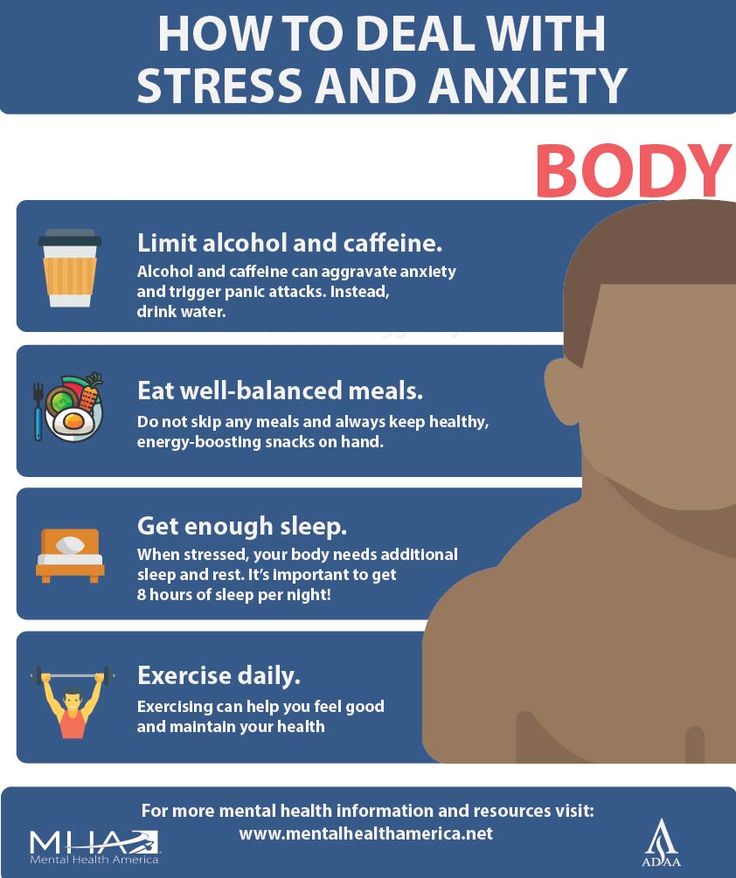
"Diaphragmatic breathing or other relaxation inducing practice (e.g., mindfulness meditation, progressive muscle relaxation, guided imagery exercises, tai chi, yoga) can reduce stress by helping to encourage the relaxation response."
10. Lay off the coffee.
Caffeine, a stimulant, can make you jittery and uncomfortable. Katie Warren/Business InsiderWhen it comes to managing anxiety, that latte in the morning is not your friend.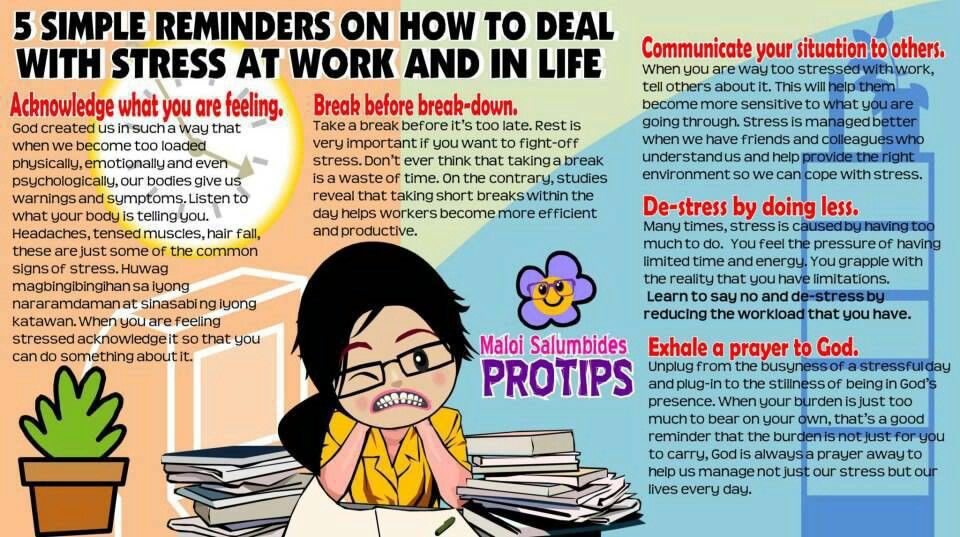
"Keep caffeine consumption to a minimum, as it can increase heart rate and physiological symptoms of anxiety," Deibler says.
11. Stay connected.
If you have five minutes, give a family member or friend a call. fizkes/ShuttestockYou can get by with a little help from your friends.
"Social support is vital to managing stress," Deibler says.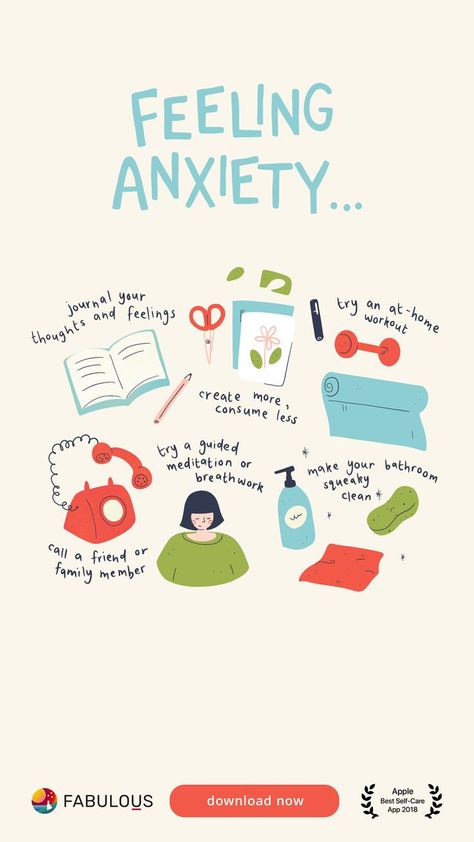 "Maintain connections to family and friends. Talking with others can do a world of good."
"Maintain connections to family and friends. Talking with others can do a world of good."
12. Seek professional help.
Cognitive behavioral therapy may be helpful if you are struggling with anxiety. wavebreakmedia/ShutterstockRemember, you don't have to go through this alone.
"Sometimes anxiety can be difficult to manage without professional help," Deibler says.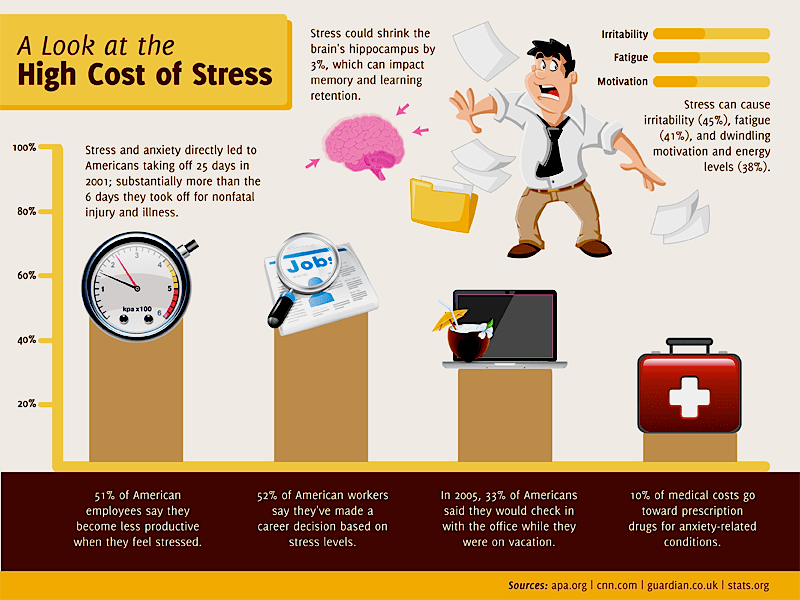 "A clinical psychologist who provides cognitive behavioral therapy can assist individuals in learning to better understand anxiety and change their relationship to their anxious thoughts and feelings. Concerned coworkers and employers might also choose to express their concern for a colleague and help to normalize the experience and encourage the individual to seek help."
"A clinical psychologist who provides cognitive behavioral therapy can assist individuals in learning to better understand anxiety and change their relationship to their anxious thoughts and feelings. Concerned coworkers and employers might also choose to express their concern for a colleague and help to normalize the experience and encourage the individual to seek help."
There has been a huge surge in the number of healthcare professionals providing telemedicine services, so check with your job or insurance provider to see what your options are for care during quarantine.
If you or someone you know is struggling with depression or has had thoughts of harming themselves or taking their own life, get help. The National Suicide Prevention Lifeline (1-800-273-8255) provides 24/7, free, confidential support for people in distress, as well as best practices for professionals and resources to aid in prevention and crisis situations.
Read next
Features Anxiety WorkMore. ..
..
How to deal with anxiety at work
Translated for you an article by a company that develops applications for a better organization of work Trello.
Anxiety as a phenomenon
The working day is coming to an end, and you still have a lot of unfinished business. You realize with horror that you will not have time to cope with everything in time. Your heart starts pounding, every minute you look at your watch, time is running out... Sounds familiar?
The US National Institutes of Health estimated that 40 million American employees suffer from increased anxiety. Another study found that 56% worry that they are not performing well at work.
Everyone is subject to such anxiety. Here's another piece of news: your boss is 50% likely to feel anxious while at work too.
Of course, anxiety can take many forms. The slight anxiety that you feel before meeting an important client, and the panic that thieves might break into your house, are manifestations of anxiety of varying intensity.
The slight anxiety that you feel before meeting an important client, and the panic that thieves might break into your house, are manifestations of anxiety of varying intensity.
When you panic, your adrenal glands release two hormones, cortisol and adrenaline. The pressure is rising, the heart is beating faster - your body is preparing to run from the robbers or put out the fire.
This "fight or flight" mechanism helps to survive in extreme situations.
But when such a reaction is triggered in the situation of "introducing yourself to the client" or "handing in the report on time", anxiety is no longer useful, but harmful.
Anxiety or stress?
It is easy to confuse anxiety and stress, but they have different origins. Stress is the body's reaction to specific external stimuli; it disappears with a change of scenery.
Alarm is a more autonomous experience and can occur on its own, without an external cause.
In the case of stress, you experience a strong relief after its source leaves (for example, the acquaintance with the client took place): there is no problem - there is no experience.
If you experience constant fear and nervousness before work, then we are talking about anxiety, which may not go away for a long time.
Living with a constant feeling of fear is very energy-consuming. It's like another job. Anyone who works on two projects knows that the quality and productivity of work are also divided in two.
Nature has programmed us to be productive and to do our jobs well. In primitive human societies, those who could not do their job were expelled from the tribe, which was equated with death.
That is, we inherited the feeling of anxiety due to its inefficiency. Although the conditions of life have changed, the biological imperative remains the same.
The alarm causes you to waste your resources. You blame yourself for not working hard enough and doing a good job, reinforcing this feeling. It turns out a vicious circle, from which it is not easy to get out.
It turns out a vicious circle, from which it is not easy to get out.
6 steps to overcoming anxiety at work
1. Stop Calming Yourself
You may think that the best way to deal with your nerves is to find a quiet place, be alone, and wait until you calm down.
Alison Wood Brooks of Harvard Business School thinks otherwise. She suggests “looking at work anxiety from a different angle,” that is, re-evaluating this feeling.
You can spend a lot of time and energy fighting anxiety and telling yourself to "keep calm and keep working," or you can learn to perceive it differently.
Perhaps it is not anxiety that causes fear and low self-esteem, but arousal? Anticipation? An impatient wait?
All these feelings, unlike anxiety, help to tune in to a positive mood and turn the fear of the unknown into its expectation.
All business content in a convenient format. Interviews, case studies, life hacks corp. of the world - in our telegram channel.
Join now!
2. Learn to make decisions and not get tired
Anyone who constantly makes decisions and evaluates their consequences knows how tiring it is. In the face of constantly changing priorities and poorly formulated goals, fatigue can become the norm of your life.
As the Harvard Business Review highlights, multitasking makes it hard to take short breaks. But our brain perceives such breaks as a sign that one thing is done.
This realization of completeness is important for a person with a high level of anxiety.
Try breaking one large task into several, and make a note to yourself as you complete each one. This will set you up for the positive: big victories start with small accomplishments.
Tim Ferriss, investor and entrepreneur, suggests going even further. Set aside 3 hours to complete one small task, even if it means postponing more urgent tasks.
Finishing one task in 3 hours will be much more beneficial for your psyche and productivity than trying to finish three tasks in the same time without doing any of them on time.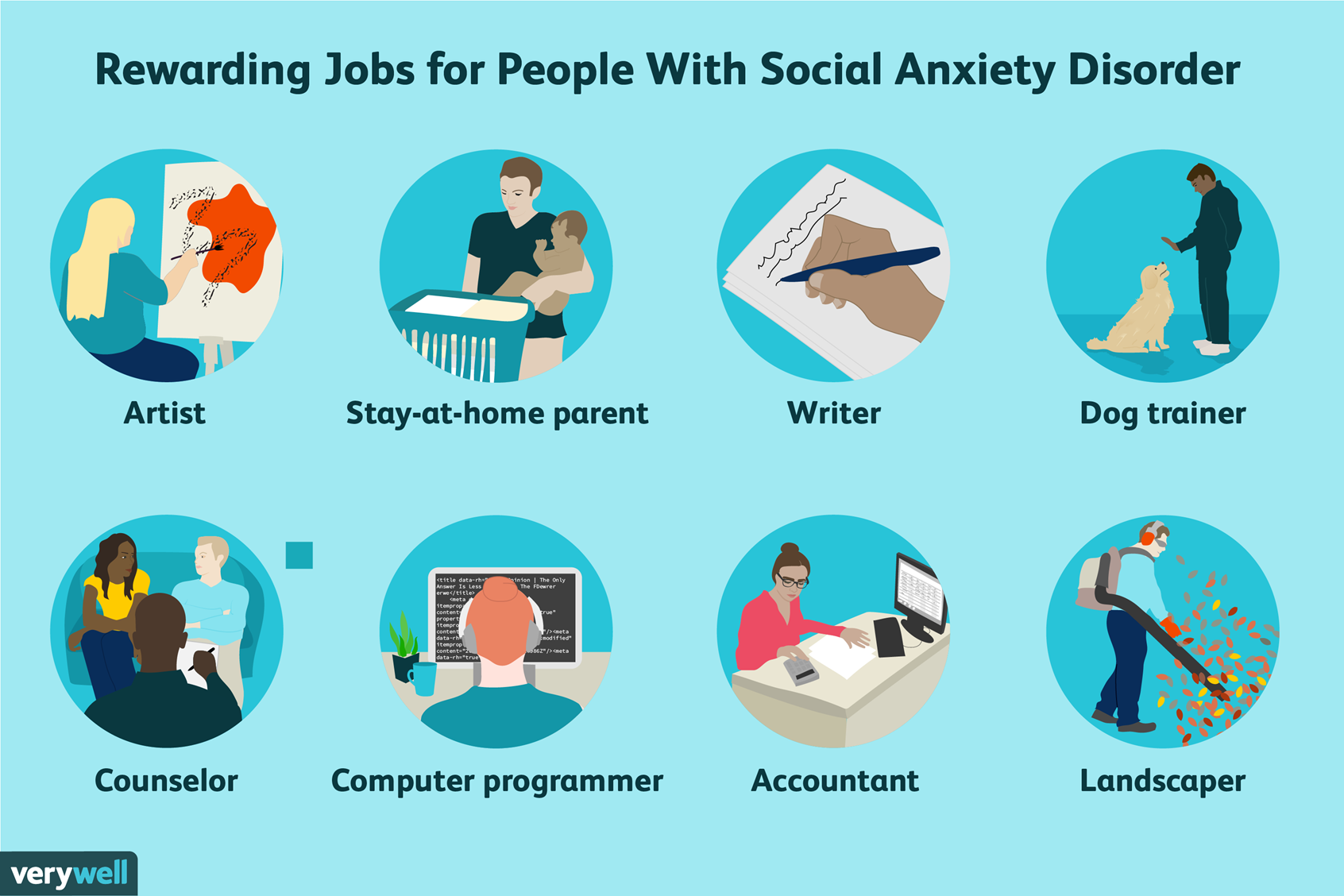
3. Study Yourself to Recognize the Signs of Coming Anxiety
Research by Missouri University of Science and Technology has shown that rapidly changing attention levels can be a sign of impending anxiety.
If you jump from task to task, constantly get distracted, and don't get there on time, you may soon be overwhelmed by anxiety.
Carefully study what such restlessness may be connected with. Watch how your mood and motivation change.
Is this a particularly unpleasant task? Or a client? Or is it all about deadlines?
It is worth understanding what caused your concern, and in the future it will be easier for you to plan work so that this does not happen again.
4. Disconnect from the Internet
Nomophobia is the fear of not being connected to the internet. It has become so widespread that scientists have become interested: researchers from the University of Iowa have already developed a 20-question test that helps identify cell phone addiction.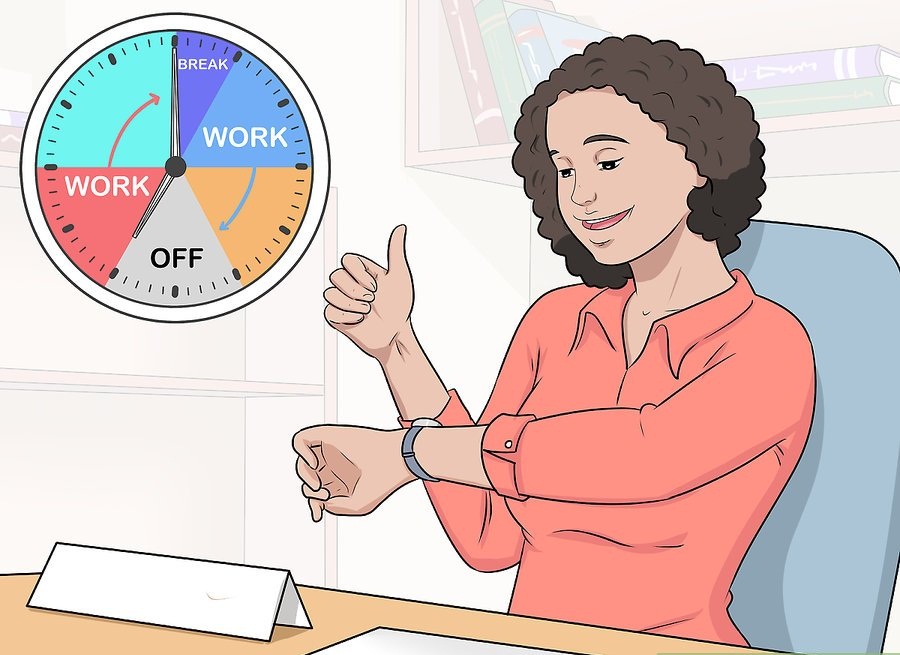
In a recent study by London-based transport company Kiwimovers, experts analyzed the top Google searches for popular tourist destinations.
One of them is "Is there Wi-Fi there?", even if visitors are looking for a zoo or a beauty salon.
Believe me, by disconnecting from the Internet, in many cases you can improve your performance.
For example, writer and founder of HARO, Pete Schekman, specifically bought a plane ticket to Tokyo and back just to be left without Wi-Fi and focus on writing a book.
5. Refine and specify
Since anxiety increases in a situation of uncertainty, you may need to get as much accurate information from management as possible.
Trying to clarify everything along the way not only negatively affects the quality of work, but also makes the anxious person feel insecure when communicating with clients.
A study conducted by the developers of the Approve.io mobile application for remote work showed that the lack of detailed instructions on how to proceed increases the level of anxiety.
One of the experts who participated in the study, psychologist Cary Cooper noted:
The physical separation of freelancers from their clients makes it harder for the former to get accurate information about the project. Email instructions may not be clear enough.
Lack of specifics from the client can cause stress for the freelancer. I recommend holding regular meetings - in person or on the Internet - to remove the cause of anxiety caused by a lack of communication.
6. Be kind to yourself
Learn to forgive yourself. And remember: to work productively, you need to be able to have a good rest.
None of these techniques will help if you berate yourself for being unable to work due to anxiety and fear. It is hardly possible to achieve such a state of serenity when nothing will disturb you.
It is better to spend energy on the gradual solution of small problems. This will keep your morale up and going forward
#Personality #Self-development #Psychology #Emotional intellect
Latest materials
Article
After-sales service: 6 ways to please the buyer after purchase
Why you shouldn't leave the client as soon as you got his money.
Read
Article
How to prove to the CEO that PR is not useless
Stereotypes about the ineffectiveness of PR - and how to dispel them.
Read
Article
Why employees with burning eyes are another test for the company
How not to let the fire in the eyes burn the business to the ground: advice to managers.
Read
How to cope with anxiety: 7 ways to help ‹ GO Blog
Anxiety is an emotional state caused by the expectation of danger or threat. While fear is a basic human emotion associated with the instinct of self-preservation, and appears directly at the moment of danger.
The terms "fear" and "anxiety" are not synonymous, but they can be used interchangeably when it comes to situational anxiety (condition at a given moment in time).
In the normal state, the self-preservation function encourages action, but there are also moments of apathy when anxiety intensifies.
We will tell you how to cope with anxiety on your own and determine its level in yourself.
Read more: "9 Proven Ways to Beat Procrastination"
How to Measure Anxiety Level
American psychologist Charles Spielberger studied more than 117 signs of human anxiety and created a scale to determine its level. His "assessment of the level of anxiety" is divided into situational and personal. Situational is responsible for the state at a given moment in time and the influence of external circumstances - for example, self-isolation. Personal - character of a person.
To determine "your level" of anxiety, you can take a test of 40 short questions.
What causes anxiety
The main factors that provoke increased anxiety in us are loneliness, problems at work, problems in relationships, health, environment and all sorts of conflicts.
Our way of life also has a great influence. For example, we are more likely to experience anxiety states if we are constantly on the phone or watching the news on TV. Digital progress has certainly made our life faster and better, but we pay for this comfort with an additional level of stress, new fears and complexes due to the large flow of news.
Try to minimize the number of hours spent on the Internet. Go outdoors, read, do yoga, cook, cross-stitch, build LEGOs – there are so many more options than you might think.
Stages of anxiety
– Waiting alarm. People who foresee the most unfavorable of all possible situations suffer. Such anxiety can appear at certain moments or haunt a person constantly.
- Anxiety in the form of phobias is associated with certain situations and objects. For example, fear of loneliness, spiders or darkness. May be a clinical case if expressed in the form of panic attacks.
- Neurotic anxiety. This form of anxiety is the most serious and is found in many psychological diseases: hysterical, schizoid. There is a pathological level of fear here that destroys the mental health of a person.
The whole planet is now in fear of waiting due to the incessant flow of news and uncertainty. "Fear of waiting" or "free fear" is formed due to the information flow in which we are constantly immersed. The tools that help to cope with situational anxiety, which has no connection with clinical cases, will be described below.
The tools that help to cope with situational anxiety, which has no connection with clinical cases, will be described below.
False alarm
Feelings of fear are easily confused, so before we talk about how to get rid of anxiety, we will learn how to identify it.
There are situations when we do not distinguish between emotions, so the so-called "false alarm" is formed. In this case, the first thing psychologists can advise is to learn how to isolate anxiety from a large stream of other emotions. Observe for yourself - in what situations you are overcome by anxiety. Divide these situations into those in which anxiety is justified and those where it is not.
For example, you are on a bus and as you approach the bus stop, you are overtaken by a feeling of anxiety. On the one hand, this may be due to fear that you will miss your stop, or a sense of shame, as it is embarrassing to ask the driver to stop the car.
Another example is when you want to ask the teacher in class, but you are afraid to raise your hand.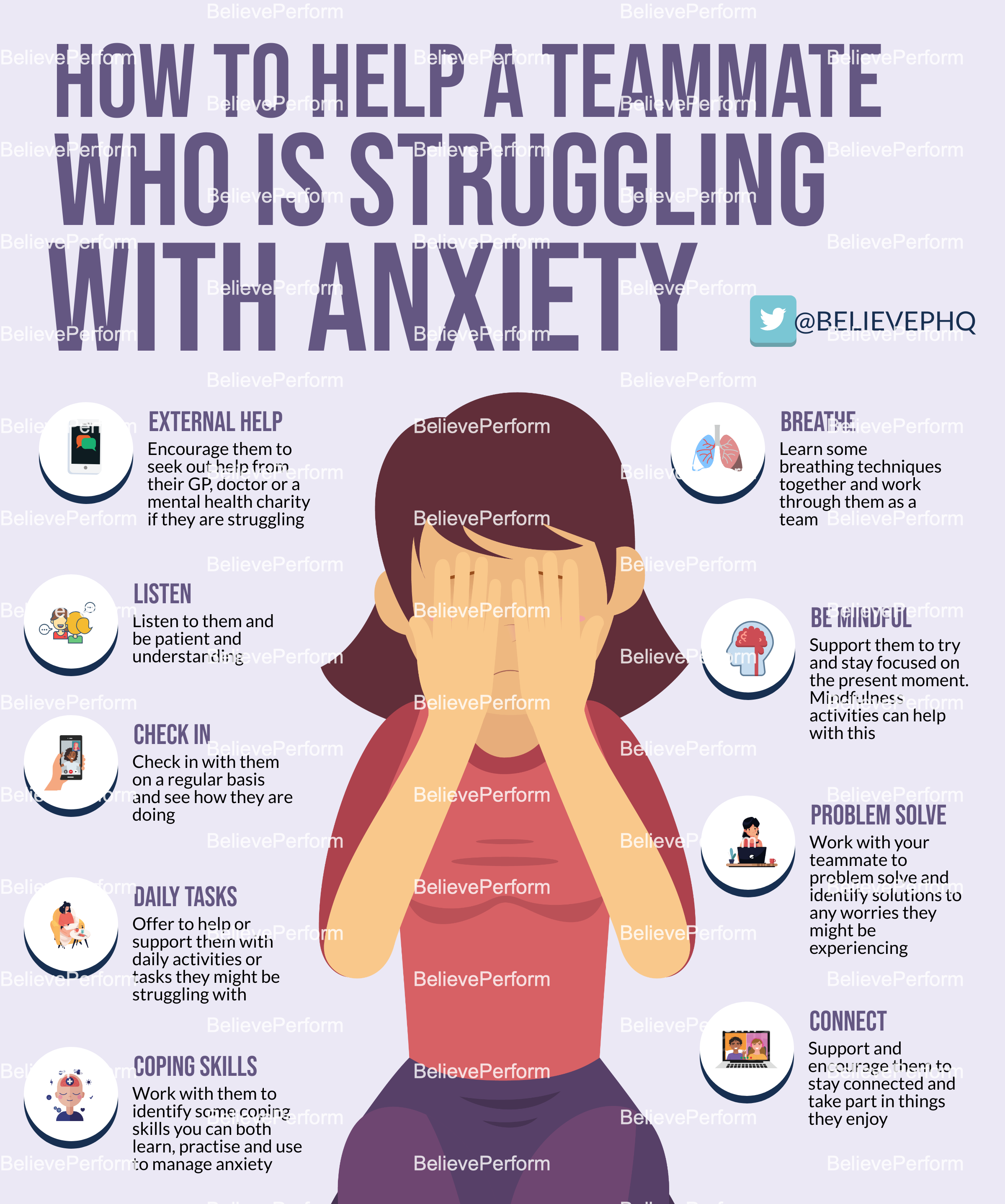 This fear may arise from self-doubt and the expectation that classmates will laugh at you.
This fear may arise from self-doubt and the expectation that classmates will laugh at you.
Sometimes anxiety is born from some other feelings, such as shame or insecurity. Realizing this and overcoming it, you no longer have a reason for concern, and with it the state of anxiety disappears.
Read more: “How to stop being shy and get rid of the language barrier”
How to cope with anxiety
Details
Anxiety often occurs due to uncertainty in the actions and feelings. First, try to find out what causes anxiety. For example, you are worried about being fired from your job. Before you panic, look at the facts: look at the state of the market and the area in which your company operates, evaluate the workload at work now and predict the task plan for the next month. And this applies not only to work, but to any area in which you feel anxiety.
Usually such an exercise helps to see the true picture.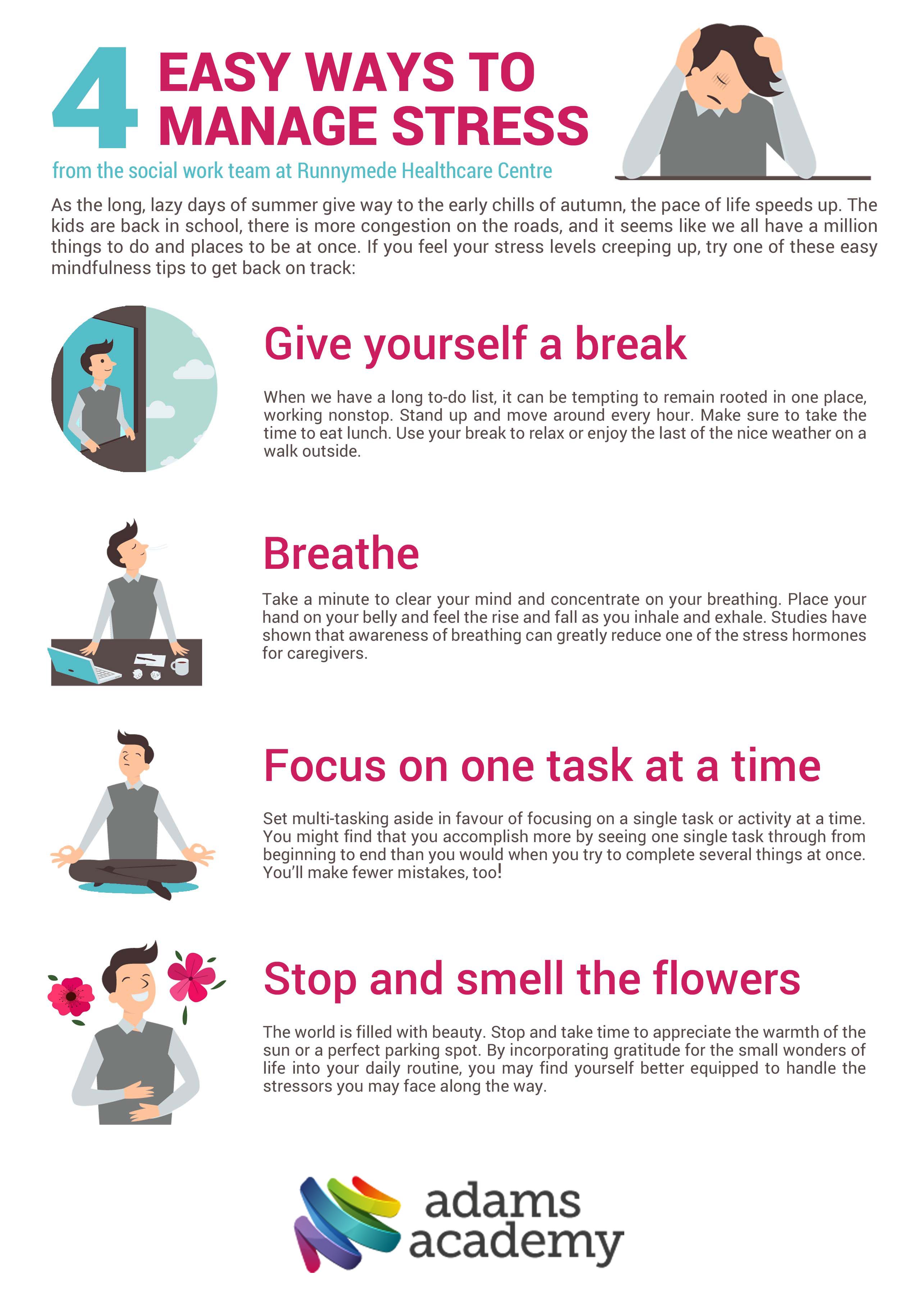 If you understand that while everything is under control, you can exhale, if not, proceed to your detailing. Write out a detailed plan of action that will help you avoid uncertainty and tell you how to act in any situation:
If you understand that while everything is under control, you can exhale, if not, proceed to your detailing. Write out a detailed plan of action that will help you avoid uncertainty and tell you how to act in any situation:
-
Write down what skills you have and where they can be useful. For example, being an illustrator or photoshop, having a driver's license and owning a car, copywriting skills, etc.
-
Edit your resume and prepare some cover letters to the employer about yourself.
-
Build your own range of services, from the most preferred activities to the least interesting.
-
Leave a list of potential employers to whom you can offer your services. The bigger, the better.
-
Write to them!
The work done will help you feel more confident and have a plan to get out of the crisis.
Sometimes anxiety arises from the belief that we will not cope with this or that action. A visual picture of your skills will always help to believe in yourself. When you read your list, you will realize that you can achieve a lot, despite the circumstances.
Read more: “4 things on your resume that will help the employer to choose you”
Use exposure therapy
A complex combination of words with a simple meaning - a meeting with your problem "on the forehead." It is important to understand that this is NOT a fight against a problem. The point is to acknowledge the existence of anxiety, not to get rid of it completely.
Don't ignore things that make you feel anxious. For example, to move up the career ladder, you need to learn English, but you haven’t opened your textbook for three days and you constantly scold yourself for it. This lowers your self-esteem and increases your anxiety about your success at work and in life.
Give yourself a full day of rest without worries or self-criticism. Imagine that this is an official vacation or vacation. And then gradually get down to business: you can start with one page of English text per day or a five-minute video. Gradually, you will accustom your body to the load and develop a habit.
Keep a sleep schedule
It is during sleep that growth hormone is produced, which is responsible for the restoration of our body, including the nervous system. Especially if we go to bed before 12 o'clock at night.
The BBC TV show Trust Me I'm a Doctor, in collaboration with the University of Oxford, did a little experiment on how sleep affects our psychological state. The study involved people who are distinguished by "strong sleep". During the experiment, the participants were given conditions: in the first three nights they had to sleep for 8 hours, which is the norm, and the next three nights - for 4 hours. Every day, the subjects answered questions that helped determine changes in their psychological state, behavior and emotions. The results showed that after two nights of sleep deprivation, negative emotions began to predominate in the subjects, as well as an increase in distrust of others and aggression.
The study also shows that insomnia is not always the result of mental disorders, sometimes it is lack of sleep that provokes the appearance of psychological problems.
Switch
It is important to periodically switch from one activity to another - for example, from physical activity to mental activity. So, when you go in for sports, there is a restoration of brain functions due to the supply of oxygen. And with mental stress, the muscular system is restored by improving blood flow in the muscles.
A simple alternation of work and study with a little physical activity will improve the functioning of the body's metabolic processes, and at the same time speed up the restoration of the nervous system, contributing to its strengthening.
Meditate and breathe
Meditation and breathing are sure helpers in overcoming psychological instability.
